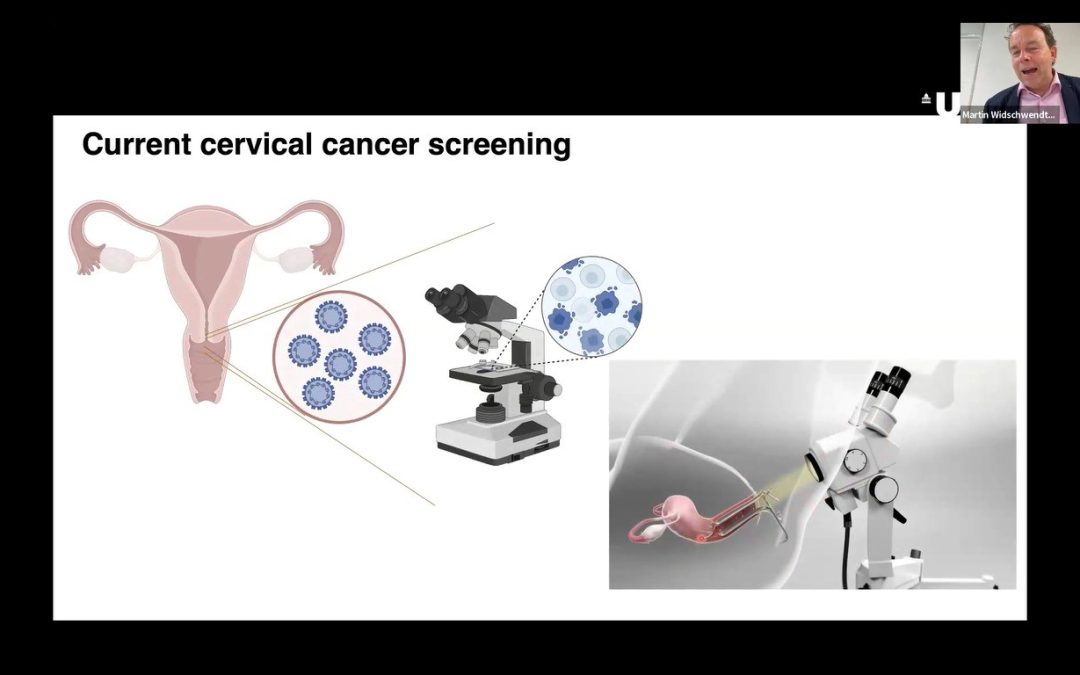The Master’s Program in Biology, Faculty of Science and Mathematics (FSM), Diponegoro University, held a General Lecture titled “Endometrial and Cervical Cancer: Update on Incidence, Mortality, and Novel Diagnostic Measures” on Thursday, May 8, 2025. The event was conducted online via Zoom and featured international guest speaker Prof. Martin Widschwendter from Universität Innsbruck, Austria.
The two-hour lecture was moderated by Rasyidah Fauzia Ahmar, M.Si., and attended by lecturers and students from The Master’s Program in Biology. This activity is also part of the World Class University program series. The session began with opening remarks from Dr. Eng. Adi Wibowo, S.Si., M.Kom., Vice Dean for Resources at FSM UNDIP. In his remarks, he emphasized the importance of the topic, particularly regarding endometrial and cervical cancer, in light of increasingly complex global health challenges. He also expressed hopes for future research collaborations between FSM UNDIP and Universität Innsbruck.

In his presentation, Prof. Widschwendter elaborated on the role of DNA methylation, particularly in CpG island regions, in cancer development, with a primary focus on endometrial cancer (EC). He stressed the importance of early detection of EC, especially in patients presenting with abnormal bleeding. Current diagnostic methods such as ultrasound (measuring endometrial thickness >3 mm), hysteroscopy (invasive), and transvaginal sonography (TVS) were highlighted as still having limitations in terms of sensitivity and specificity.
Furthermore, Prof. Widschwendter addressed diagnostic disparities based on race, noting that Black women tend to have lower sensitivity in early EC detection and often experience delayed diagnoses, contributing to higher mortality risk. He also presented data on subtype differences, where Black women are more frequently diagnosed with the serous subtype (29%), while white women more commonly have the endometrioid grade 1/2 subtype (47%).
During the discussion and Q&A session, Prof. Widschwendter introduced a novel diagnostic technology currently in development: Women’s Innovative Diagnostics (WID). This method targets specific DNA methylation patterns using qRT-PCR and has demonstrated sensitivity and specificity rates exceeding 90 percent.
Through the Visiting Professor Program, FSM UNDIP continues to expand its international network and deliver cutting-edge insights in biomedical sciences and molecular diagnostics to its academic community.
[Public Communications/FSM/Meilia]

